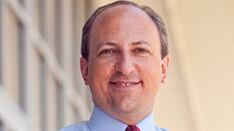Former Oregon House Speaker Dave Hunt (D-North Clackamas) was cited in an online sex trafficking sting on Saturday along with seven other men.
In a press release, the Portland Police Bureau said its Human Trafficking Unit planted ads on websites in April to attract people who would pay for sex. Hunt’s involvement was first reported by the Portland Tribune, which matched Hunt’s name, address and age with one of the men cited.
Hunt’s attorney, Mike De Muniz, told WW in an email that “Mr. Hunt denies the allegations, but respects the criminal justice process and will refrain from saying more until he has his opportunity in court.”
Eight men were cited for commercial sexual solicitation, according to the bureau. The men were arrested individually when they arrived at the location agreed upon online.
Hunt, a Democrat, served as a state representative for 10 years, in which he served a two-year stint as the House majority leader and then another two years as speaker. The Tribune noted that he voted for the law that was used to conduct the weekend sting.
Hunt is currently a board member at Clackamas Community College and the CEO and president of Columbia Public Affairs, a lobbying group.
CCC president Tim Cook and the chair of the school’s board, Greg Chaimov, released a statement this morning regarding Hunt.
“We are shocked by this allegation and will take appropriate actions that best serve the interest of our students and our community. Effective immediately, Dave Hunt is taking a leave of absence from the board,” they said.
Columbia Public Affairs did not respond to a request for comment.
Update: After the police bureau announced the sting, sex work advocate Elle Stanger asked the bureau for clarification on the term “human trafficking,” which most often refers to nonconsensual and illegal transportation or sex solicitation of people using force or deception.
PPB spokesperson Lt. Greg Pashley replied: “I believe what is meant in this case by trafficking is dealing or trading in something that is illegal.”
The bureau’s definition of that term would encompass prostitution, which is illegal in Oregon, but consensual. PPB did not immediately elaborate on what it meant in this specific case by “human trafficking” when asked by WW.

